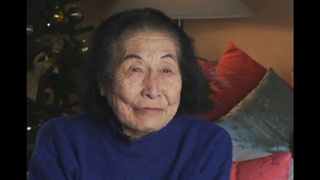Interviews
Rewards of teaching
I think it's rewarding, but you're not gonna make money. I still remember, 'cause I had some loans to pay off when I completed my graduate work and I went to the bank and I was talking to my banker friend and I said to him, You know, I've gotta be able to support the family and do this and that, what advice would you give me? And he said to me, Quit teaching. [Laughs]
There may be better money elsewhere, but I think the satisfaction you get -- some people call it psychic income -- is tremendous, I think. Well, I believe education is our most positive pursuit as human beings in the broadest sense. Now I distinguish between school and education. Lot of what we get in school is not education. But, and education can take place in different places and in different ways, but I think education is so important to all of us as human beings and important to the society. So I think it's a good field to get into. It's very positive and I worry about some of my friends who are stevedores or carpenters, they have a limited life because it requires them to be physically fit and after fifty or sixty, it's not that easy. But, I guess as professors, the mouth doesn't get that tired. [Laughs]
Date: March 19, 2004
Location: California, US
Interviewer: Mitchell Maki
Contributed by: Watase Media Arts Center, Japanese American National Museum.










